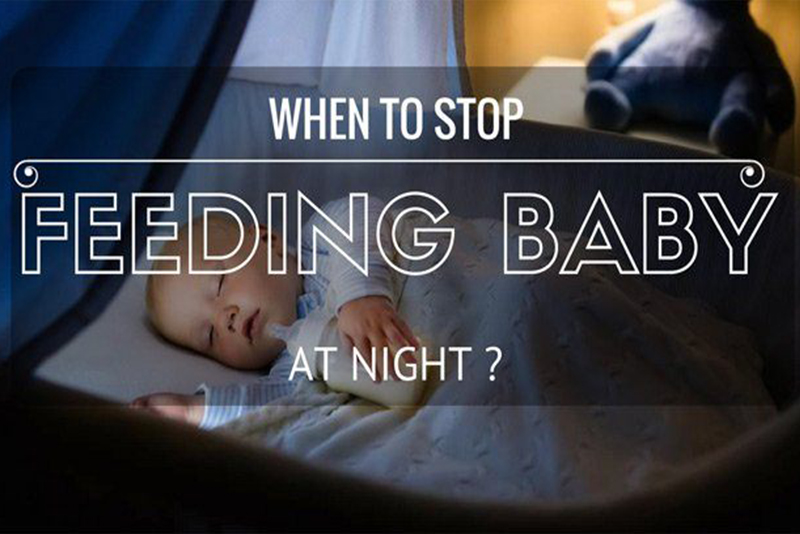While sleeping through the night is considered a developmental milestone, the age your child learns to master it can vary from 6 months to toddlerhood. At some point, your child will naturally wean off night feeds and just sleep—even if you do nothing to encourage it.
Pediatricians recommend avoiding any unnecessary night feedings. Night feeding can be a cause of sleep problems. If a child wakes up to eat several times during the night, a very wet diaper or digestive problems may cause him to wake up and ask for more feeds, creating a vicious cycle.
Night weaning may not appeal to all. The benefit of night feeding, such as bonding between parent and child, depends on the individual.
In the end, as with all parenting decisions, you should do what's best for you and your family.
Tips to kick-start night weaning
- Start the weaning process slowly and gradually
Try to prolong the intervals between feedings. You can try patting and singing your baby back to sleep, rather than sucking on a bottle.
- Reduce the amount of milk
Give your child a smaller feed. Remove 30ml of milk the first night for two to three nights. Once your child adjusts to the amount, reduce it again and so on until you can stop altogether. A breastfed baby can adjust to shorter durations at the breast.
- Offer other forms of liquid
Instead of giving your baby a bottle of milk, offer water. Water is less interesting and filling compared to milk and they are less likely to wake up for it.
- Self-soothing
As your child grows older, they develop a vivid imagination that may cause them to wake up at night. Allow your child to soothe himself back to sleep instead of running to his side the minute he stirs.
- Dream feeding
Dream feed is commonly known as sleepy feed. This happens at around 11pm, or just before you go to bed. Start by gently rousing your sleeping baby and encourage him to drink milk. Your baby will usually take the feed with his eyes closed, before you gently place him back to sleep.




